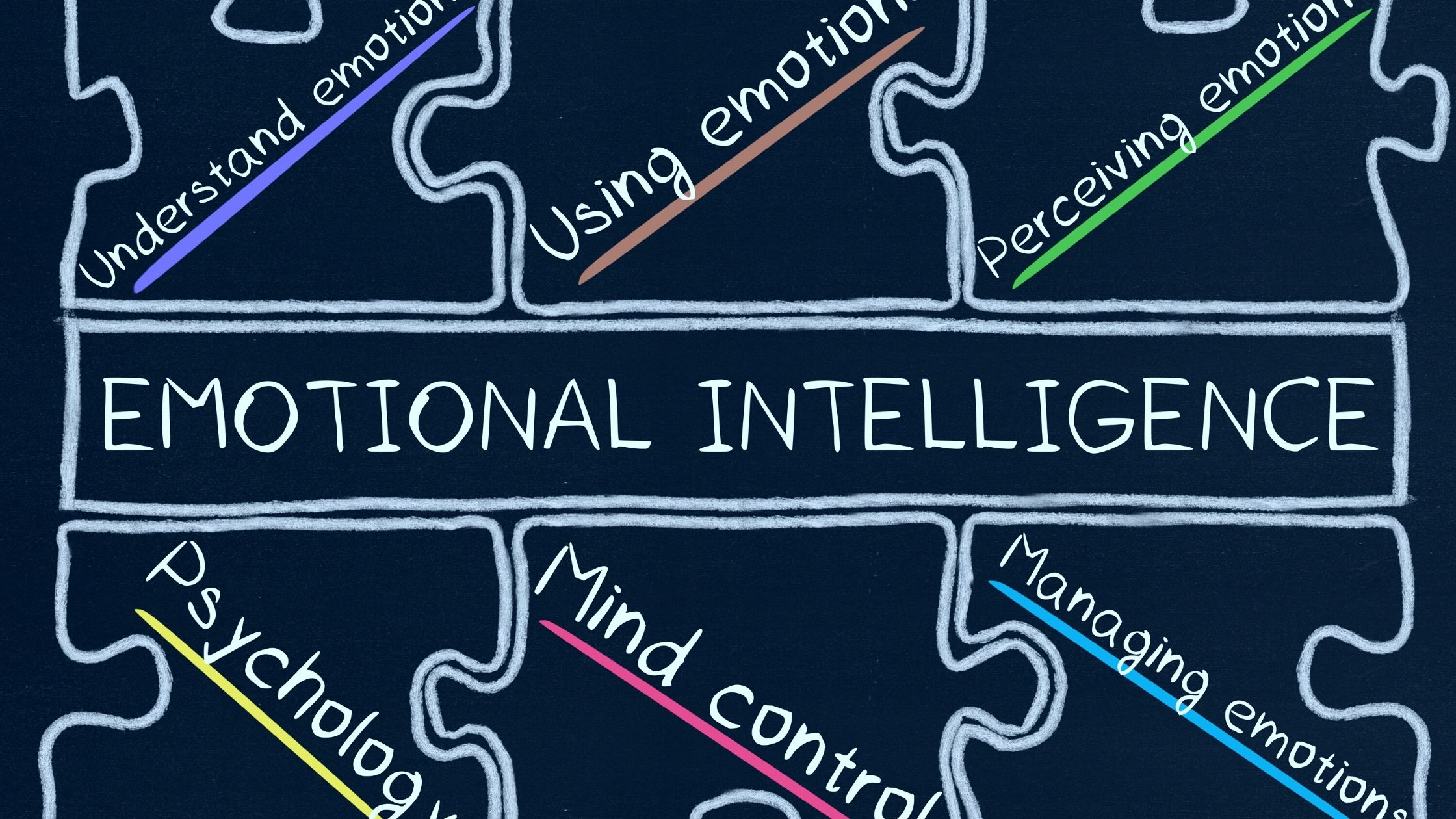This article begins a 5-Part Series on Emotional Intelligence for Leaders. We will cover self-perception, self-expression, interpersonal relationships, decision-making, and stress management.
When you’re a leader of a team or organization, you want to know that you are respected and can influence those around you. Whether you are trying to get comfortable in your new role or just want to improve your leadership skills, you may be wondering how to become an influential and respected leader.
We all know that leadership requires courage, respect from your team, and intelligence. But that last point isn’t just about your smarts or what you know. It’s also about emotional intelligence and self-awareness.
Vironika Tugaleva wisely once said, “To know yourself, you must sacrifice the illusion that you already do.” It’s essential that aspiring or current leaders do the work needed to truly know themselves and gain self-awareness. Self-perception is an integral part of the emotional intelligence required to be a respected and influential leader.
There are five essential tools for a successful, emotionally intelligent leader, including self-expression, self-management, interpersonal skills, and stress management. In this article, we will delve into the first tool – self-perception and how you can successfully do the work to truly know yourself and lead others effectively.
What is Emotional Intelligence?

Emotional Intelligence, or EQ, is the ability to perceive your own and others’ emotions accurately. Emotional intelligence helps you understand the signals that emotions send about relationships and helps you manage your and others’ emotions. Emotional intelligence means understanding how you respond to your feelings and the feelings of others.
Emotions can affect our decision-making and influence how others view us. Emotional intelligence helps defuse conflicts, improve relationships, empathize, understand others, and adjust to change – all important in creating an optimal work environment and effectively leading others. Emotional intelligence, natural in some, can be learned with the proper training and coaching.
Those with high emotional intelligence:
- Choose battles wisely
- Resolve conflict effectively
- Remain calm under pressure
- Are empathetic
- Lead by example
- Are resilient and happy
- Generally succeed in their roles and earn more than their colleagues!
What is Self-Perception?

The American Psychological Association defines self-perception as; “a person’s view of his or herself or any of the mental or physical attributes that constitute the self.”
That’s one way to look at it, but from a leadership coaching perspective, self-perception is more than just how we view our “inner self”, it is a vital ingredient in becoming a successful leader.
After all, if we have a positive perception of ourselves, we will most likely have more positive thoughts and beliefs about the world overall. And when we have more positive thoughts, that in turn can lead to more frequent positive behaviors.
Ultimately, self-perception is about knowing your strengths and weaknesses. It’s also being self-aware of your emotions and how they affect others. It’s our image of ourselves, our traits, and how we feel about both. Being successful in this area means that you feel strong, are aware of your emotions and are both confident and comfortable in pursuing your personal and professional goals.
According to Multi-Health Systems (MHS), leaders in the field of clinical assessments, when we look deeper at self-perception, we can divide it into 3 categories:
Self-Regard is respecting oneself while understanding and accepting one’s strengths and weaknesses. Self-Regard is often associated with feelings of inner strength and self-confidence.
Self-Actualization is the willingness to persistently try to improve oneself and engage in the pursuit of personally relevant and meaningful objectives that lead to a rich and enjoyable life.
Emotional Self-Awareness includes recognizing and understanding one’s own emotions. This includes the ability to differentiate between subtleties in one’s own emotions while understanding the cause of these emotions and the impact they have on one’s own thoughts and actions and those of others.
Self-Perception and Emotional Intelligence

When you are self-aware and know yourself, you have emotional self-awareness, and you can self-actualize and improve yourself. When you are emotionally self-aware, you understand your emotions, what causes them, how they impact yourself and others, and the things that cause your actions driven by them. This can then extend to understanding the emotions of others, how to empathize with them, and how to lead them effectively.
When you use self-perception as a part of emotional intelligence, you can achieve success as a leader. Self-perception can lead to being more productive, collaborating better with coworkers and your team, reducing your stress and the stress of your team, improving relationships, effectively working through conflicts, and creating leaders within your team!
Why is Self-Perception Important in Leadership?
Leading others is more than decision-making and problem-solving. It involves understanding and responding appropriately to social situations no matter how intense emotions get. Having higher developed levels of self-perception and tapping into them strengthens personal and professional relationships, creates a healthy work environment, and nurtures emotionally sound company cultures necessary for business success.
Leaders have to be able to set the right tone for their team, department, or organization. When leaders are self-aware, they understand how they can positively impact their workplace and improve retention and employee engagement.
Improve Emotional Intelligence and Become an Influential and Respected Leader

Emotions are normal. Insight, self-awareness, and emotional intelligence are all required to manage and use those emotions. It’s essential to be able to identify and name a feeling, choose a suitable reaction, and respond appropriately.
But how do you know if you are truly self-aware? One way is to take an emotional intelligence assessment. An assessment like the EQ-I 2.0 (click here to see a sample assessment) will assess your emotional intelligence and provide you with actionable steps to work on. From there, you can review the results with your coach and implement a plan to make improvements.
Summing It Up
Emotionally intelligent leaders who have self-perception are effective, being able to identify expectations, needs, and wants of themselves and of others. They also lead from a place of calm, resilience, and confidence. This builds better teams.
But self-perception is only one quality of an emotionally intelligent leader. In our next article, we will discuss another vital component of emotional intelligence: self-expression.
Are you ready to explore self-perception and improve your emotional intelligence? If you’re ready to learn more about EQ and get your EQ-I 2.0 Assessment schedule a call with me and we can get started!
Did you enjoy this article? Make sure you read the whole series!
Emotional Intelligence for Leaders: Part 2 – Self Expression
Emotional Intelligence for Leaders: Part 3 – Interpersonal Relationships
Emotional Intelligence For Leaders: Part 4 – Decision-Making


